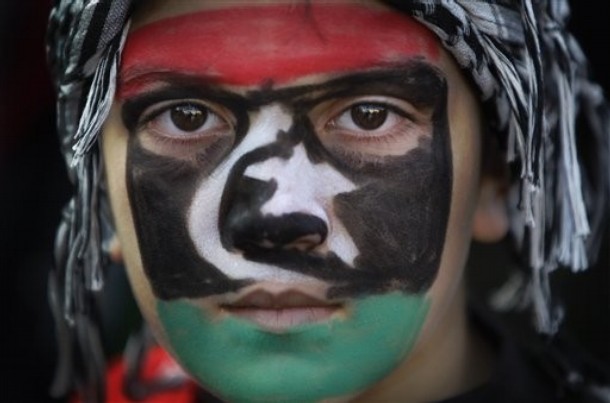
From Tony Karon, TIME: Saif al-Islam Gaddafi, however, this week mocked the idea that the rebels have any say in the matter, telling an Algerian newspaper: "The truth is that we are negotiating with France and not with the rebels. .. France said: ‘When we reach an agreement with you (Tripoli), we will force the [rebels’] council to cease fire’."
French officials denied that, but made clear that that in the Libya conflict, everyone is talking to everyone. And they sought to spin the new developments as the prelude to a cry of "oncle" out of Tripoli, with Gaddafi’s emissaries indicating his willingness to step down as part of a political solution if hostilities are ended. . . .
The truth may lie somewhere in between NATO’s formal statements about the rebels making the key political decisions and Saif al-Islam’s derision of that idea. [NATO Secretary General Anders Fogh] Rasmussen on Wednesday emphasized that a political solution must be "led by Libyans, supported by the international community, and fulfill the legitimate demands of the Libyan people." NATO is hardly going to be seen to be imposing terms on the rebels. Yet, it’s plain to see that the timetable and urgency for such a solution is driven by NATO’s waning commitment to a fight the rebels would struggle to sustain without direct Western involvement. As bravely as its fighters have acquitted themselves, the rebel army simply lacks the means to fight the war without the support of NATO air power. The Benghazi-based Transitional National Council is entirely dependent on Western support, not only militarily and diplomatically, but also financially. In other words, however they choose to frame the matter, the casting vote is in the hands of those NATO powers waging the air campaign.
And NATO’s commitment to field the resources necessary to wage a campaign that began almost four months ago is nearing its ceiling. Officials have long made clear that the alliance would struggle to sustain the air campaign beyond the summer. U.S. intelligence believes the Gaddafi regime’s own ability to fight on is also deteriorating, with fuel supplies expected to run out by summer’s end, mounting pressure on the civilian population as a result of the war and sanctions, and a steady stream of defections as officials seek a way out. . . .
Even though the Western alliance’s goals quickly evolved from the protect-civilians mandate by the UN Security Council towards an explicit quest for Gaddafi’s ouster, it has never made itself accountable to the rebels, nor is it likely to. And it’s highly unlikely that the rebels would be in a position to defy a NATO decision to end the fighting, as much as Alliance leaders are careful to stress that the key decisions will be made in Benghazi. Sure they will, but quite possibly on the basis of the proverbial offer they can’t refuse. (photo: AP)
Image: ap%204%204%2011%20Boy%20Libyan%20flag%20Benghazi.jpg
